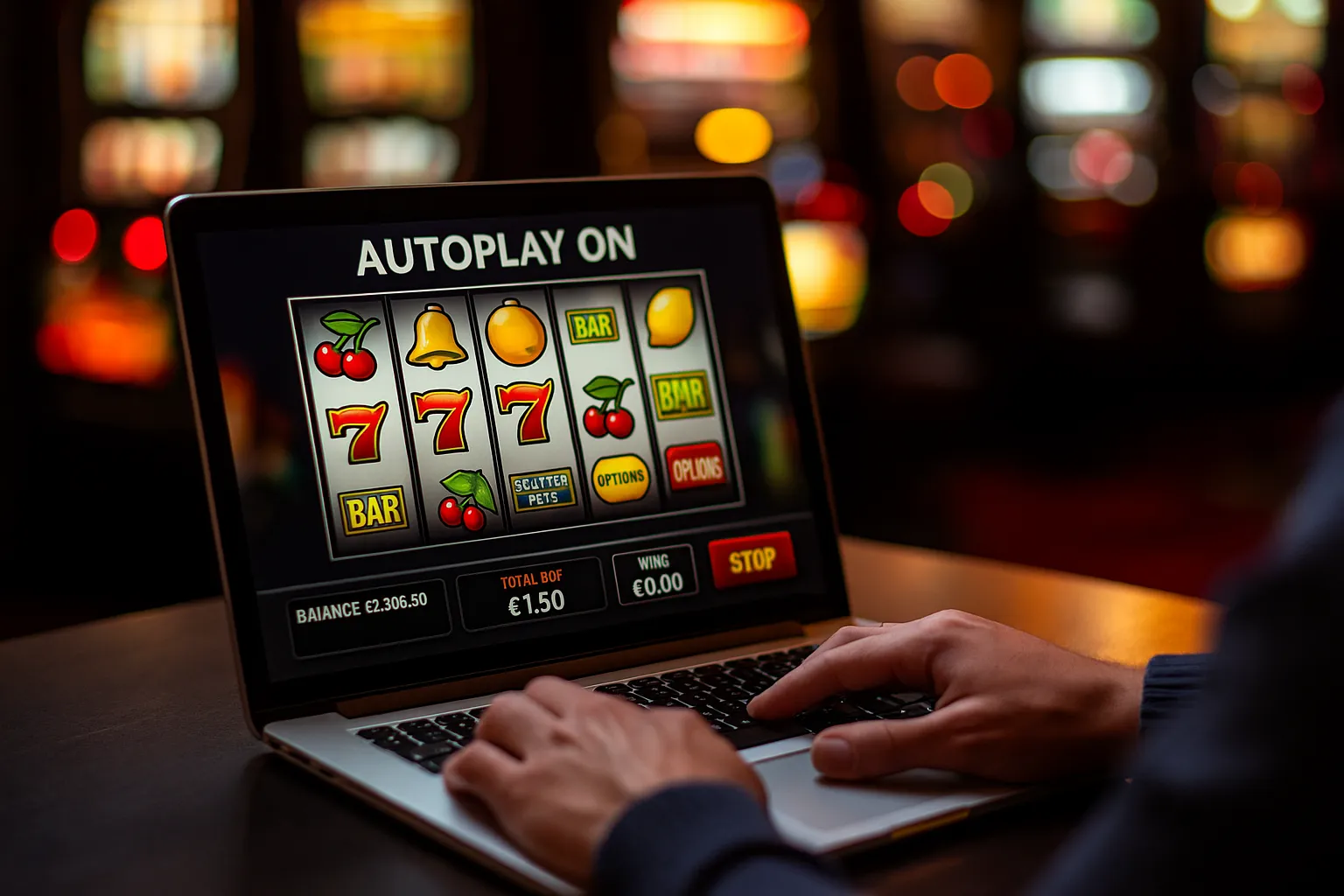When you sit down at a slot machine or load up an online casino game, the spin button is usually the star of the show. It gives you a sense of control with every press. But modern slot games often come with an “autoplay” feature that lets the machine handle the spins for you. At first glance, autoplay seems like a convenience — a way to enjoy the game without clicking endlessly. Yet the way it shapes player behavior is far more complex and deserves a closer look.
As someone who has spent years exploring casinos, both physical and digital, I’ve noticed that autoplay can dramatically change the way players interact with games. It speeds up gameplay, reduces conscious decision-making, and often leads to higher spending than expected.
The Seduction of Convenience
One of the main reasons autoplay is so popular is its ease. Players can set the number of spins, adjust bet sizes, and let the reels roll automatically. The machine takes over, turning what was once an active process into something passive. This convenience is appealing, especially when you’re multitasking or just want to relax. However, there’s a hidden cost: you lose the natural breaks between spins that encourage reflection. Without those pauses, players often underestimate how much they’re wagering over time. For newcomers, safer entry points like deposit £1 casino options may provide a better way to experience gameplay without the same risks of over-automation.
Faster Gameplay and Reduced Awareness
Autoplay speeds up the pace of play significantly. Where a manual spin might involve a few seconds of anticipation, autoplay cuts that down to near-instant repetition. In practice, this can double or even triple the number of spins within the same time frame.
The thrill of anticipation, which normally acts as a natural brake, is replaced by a relentless cycle of outcomes. Many players only realize how much they’ve spent after a long session, when their balance is far lower than expected. The lack of conscious engagement is one of the biggest behavior-shaping aspects of autoplay.
The Loss of Control Illusion
Pressing the spin button feels interactive, even if outcomes are random. With autoplay, this illusion of control vanishes. The machine dictates the rhythm, and players become observers. While some enjoy this hands-off approach, others find it disconnects them from the game.
This disconnection often leads to longer sessions. If you’re less engaged in each spin, you’re less likely to stop and reassess. The result? More money flowing into the machine before you’ve even noticed.
Emotional Numbness During Play
Slot games are designed with sensory triggers — lights, sounds, animations — all of which stimulate emotion. But when autoplay is enabled, the emotional highs and lows blur together. Wins and losses happen too quickly to process.
This emotional numbing can reduce the satisfaction of small wins and lessen the sting of losses. While that might sound positive, it’s actually dangerous because it makes losses easier to ignore. Over time, players can end up spending more without feeling the impact in the moment.
Autoplay and Responsible Gambling Concerns
Regulators in several countries have scrutinized autoplay features for exactly these reasons. Some regions have even banned autoplay on online slots to protect players. The concern is simple: by removing conscious decision-making, autoplay makes it easier for people to gamble beyond their limits.
Casinos may argue that autoplay offers convenience, but the data shows that players using autoplay often wager more per session. It’s a clear example of design influencing behavior in ways that aren’t always beneficial to the player.
Real-World Player Experiences
I’ve seen plenty of players who enjoy autoplay, particularly those who treat gambling purely as entertainment. One regular I spoke to in an online community described autoplay as “background fun” while watching TV. But he admitted that he often lost track of time and money, realizing only afterward that his balance had dwindled far faster than he expected.
On the flip side, players who prefer manual play report feeling more in control. Even though the odds are the same, the act of pressing the button makes them more mindful of every bet placed.
Finding a Balanced Approach
If you enjoy autoplay, the key is balance. Set strict limits before enabling it — both in terms of time and money. Many casinos include stop options for when your balance drops to a certain level or when a bonus round is triggered. Using these tools can help you enjoy the convenience without falling into unconscious overspending.
Equally important is taking breaks. Even with autoplay running, stepping away from the screen helps reset your awareness and gives you perspective on your play.
Final Thoughts
Autoplay in slot games might seem like a harmless convenience, but its impact on player behavior is significant. It accelerates gameplay, reduces decision-making, dulls emotional responses, and often leads to overspending. While it can be enjoyable for those who want a hands-off experience, it’s vital to recognize the risks it carries.
For players looking for more controlled and affordable ways to enjoy slots, options like deposit £1 casino platforms can provide a safer starting point. Ultimately, awareness is the best defense. Understanding how autoplay shapes your play allows you to make smarter choices and maintain control over your gambling experience.




